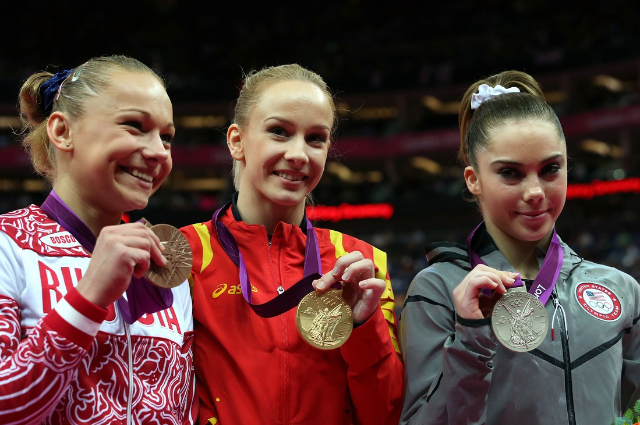You would be wondering, how can someone get upset because of a silver medal whereas the bronze medalist seems more happy. You would have observed it in any game whether Olympics or district championship.
Let's look at this picture!
Here you can see clearly who is more happy. But what is the reason behind it? So let's look over it.
In the study of personality and social psychology it was mentioned that it is not only about Olympic it's about every sportsperson. This phenomenon is known as less-is -better effect. This phenomenon can be seen in daily life also like if your mother gives you and your brother a glass of juice. You are given juice in a big glass whereas your brother has his juice in a smaller one. Now you are likely to say that his glass is overfilled and your's is half empty.
Wait, people are not sensible, they are deeply irrational about things. Psychologists Victoria Medvec and Thomas Gilovich of Cornell University said that this phenomenon is can be explained as "Counterfactual thinking" this means people compare their achievements with "what might be" not the results declared.
The common Counterfactual thinking with different medalists is what they would have done. Silver medalist compares herself with the gold that she would have done better to achieve whereas bronze medalist compares herself with the fourth rank that she put lot's of hard work to cross the fourth ranker and at least she got a reward for it that is "Bronze". She would focus on almost not winning a medal at all. The categorical difference, between being a medalist and not winning a medal, does not exist for the comparison between first and second place.
This can be related to social comparison among other competitors. Social comparison is a bi-directional phenomenon where we can compare ourselves to people who are better than us - “upward comparisons” - or worse than us - “downward comparisons.” Engaging in either of these two comparisons on a performance dimension can affect our self-evaluation. On one hand, upward comparisons on relevant dimensions can threaten our self-evaluation and jeopardize self-esteem
In 2006, psychologist David Matsumoto of San Francisco State University, together with Bob Willingham of The World of Judo magazine teamed up to see if this pattern would hold up when considering facial expressions following judo matches at the 2004 summer Olympics in Athens. They collected data from eighty-four athletes and thirty-five countries at three different times: immediately after their matches, when they received the medal, and when they posed on the podium.
Altogether, they found that thirteen of the fourteen gold medal winners smiled immediately after they completed their winning match, while eighteen of the twenty-six bronze medalists smiled. However, none of the silver medalists smiled immediately after their match ended. This is the scenario of every second ranker after the results. The difference lies in "I almost " and "At least I did".

